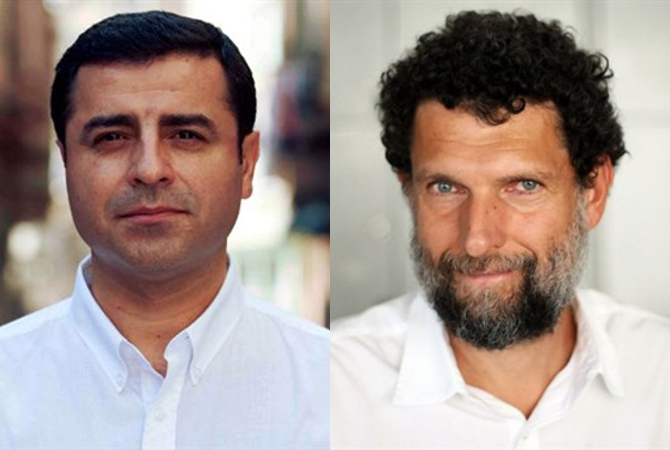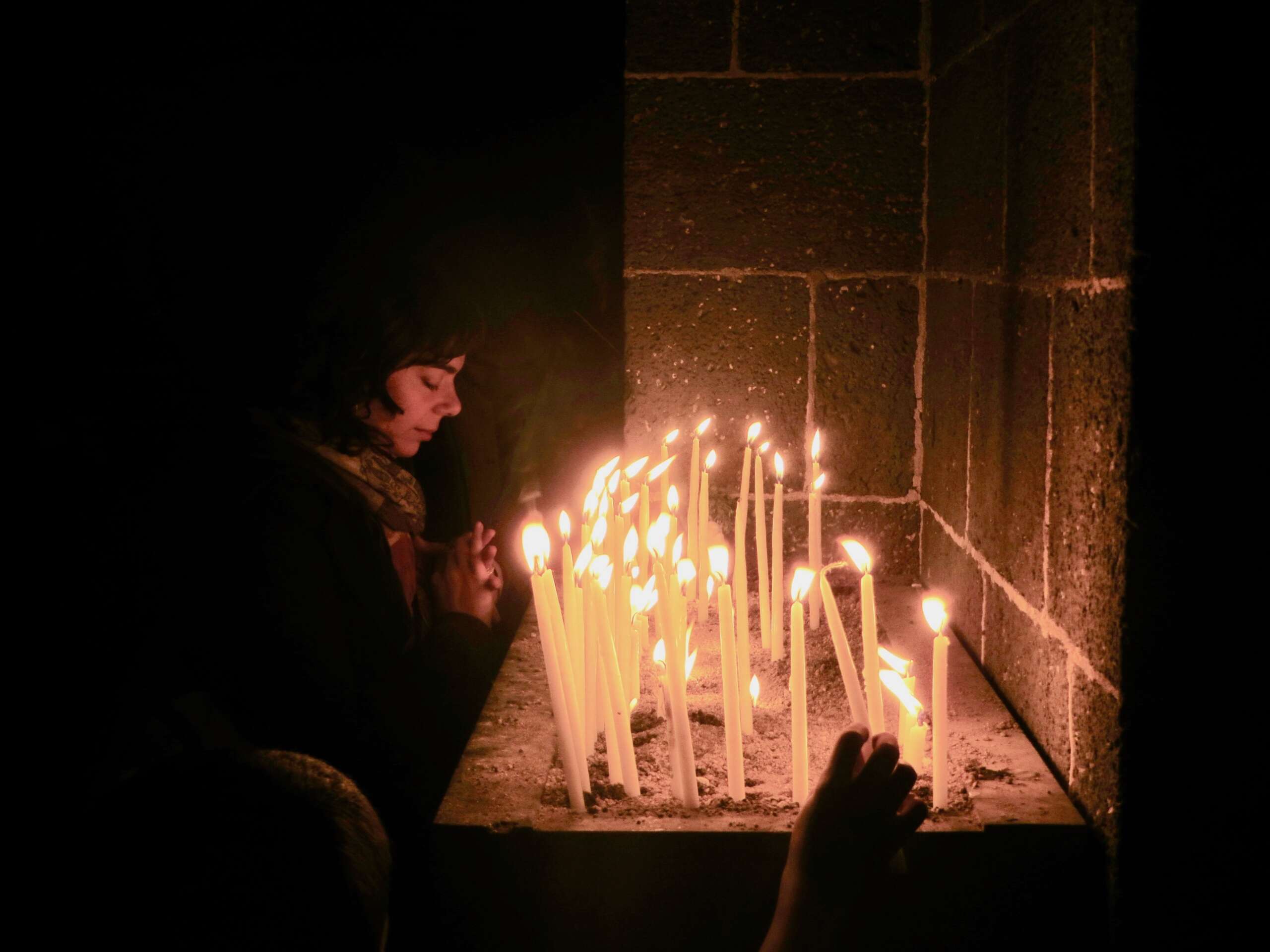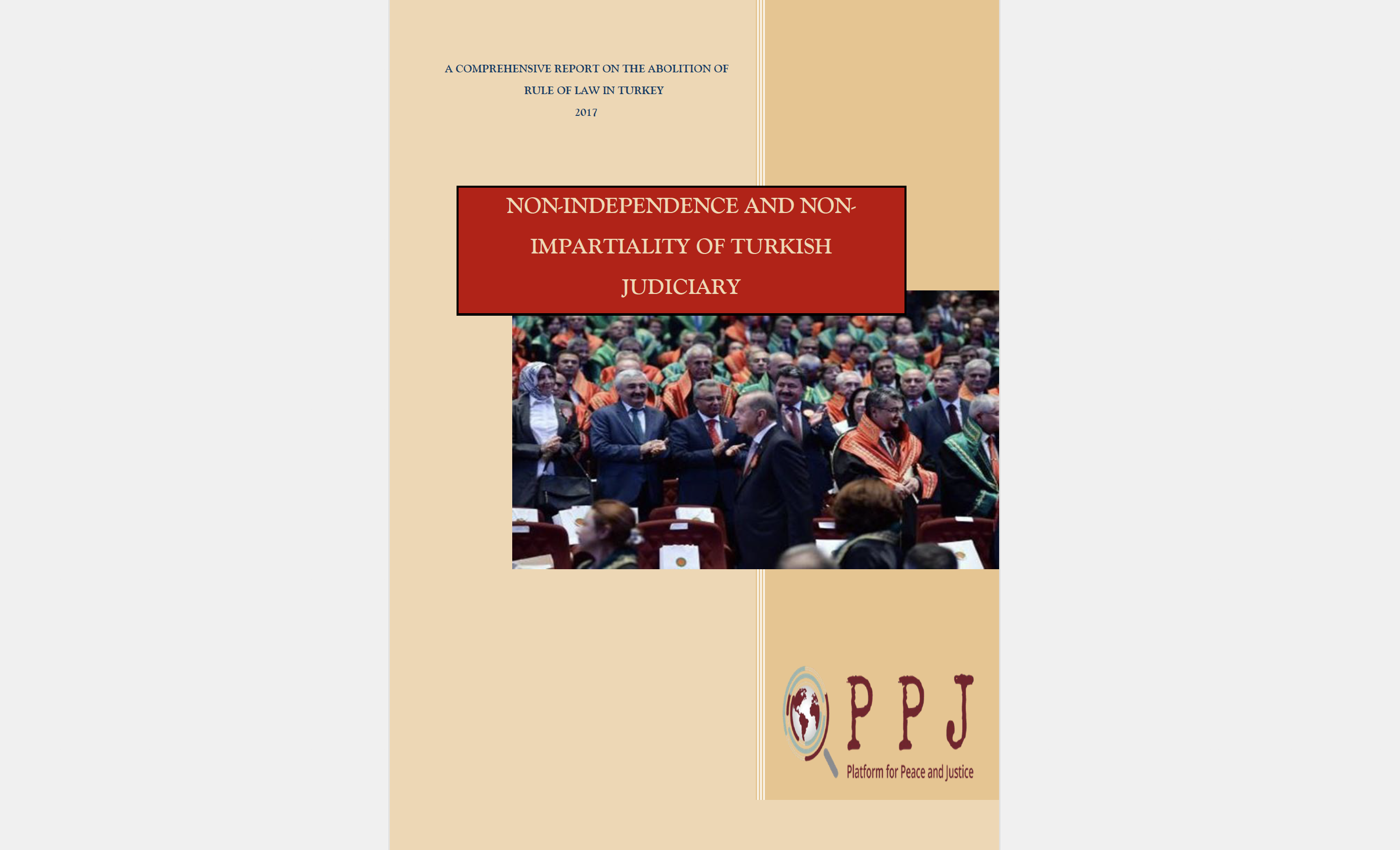Turkey has been going through a catastrophic period since the Gezi protests in June 2013 and launch of a corruption probe into President Erdogan’s family and members of his cabinet in December of the same year. Erdogan has violently stopped the protests and blatantly obstructed the probe. Afterwards, he transformed the judiciary into an extension of the government rather than an independent body and has started to spread instability in the region and in Europe, where Erdogan’s henchmen pursue those who seek refuge from his government. To avoid being impeached, Erdogan made Turkey’s notorious ultranationalists, who have deep roots within the state apparatus including the army and judiciary, his new allies. The alliance has been punishing opponents by means of the judiciary. Amnesty Turkey’s chair Taner Kılıç and well-known philanthropist Osman Kavala were put in jail. The former has been released following a more than one year jail term while the latter still is in prison even without an indictment presented against him. Murat Arslan, head of the now dissolved Association of Judges and Prosecutors, has been in jail since October 2016; PACE awarded him the Havel Vaclav Human Rights Prize in 2017. He has recently been sentenced to 10 years imprisonment. Selahattin Demirtas, former co-chair of Turkey’s third biggest party, has been in jail since the late 2016 alongside dozens of members of his party. Recently, The European Court of Human Rights (ECtHR) ruled that Demirtas’s long pre-trial detention is violation of several articles of the Convention. However, Turkey’s Erdogan immediately defied the Court’s decision saying “The decision is not binding. We will make a counter move”. What Erdogan meant by “counter move” was again a part of his play with the courts of the country. An appeal court hastily approved 4 years 8 months jail sentence for Demirtas which has voided the ECtHR decision. Because the ECtHR ruled on his pretrial detention but now he has become a convicted person. This is how it works in Turkey of Erdogan-Ultranationalists alliance.
Erdogan and the Ultranationalists are the two major players currently holding the power over the judiciary. To eliminate their opponents, mainly pro-Western bureaucrats and civil society actors, this alliance first introduced ‘Criminal Peace Justices’ – designed as a kind of ‘closed circuit’ structure to decide arrest and confiscation issues. These courts began their duties in July 2014. Events and public statements by Erdogan indicate that these courts have been created, staffed and instructed by the executive. Legal experts and international bodies such as the Venice Commission criticize them for violating the principles of natural justice.
The biggest attack on the judiciary came the day after the coup attempt of July 15, 2016: arrest warrants were issued for 2,745 judges and prosecutors. Nearly 5000 judges have been dismissed and almost 2500 of them were imprisoned, including hundreds of members of the Supreme Court and the Constitutional Court. Judges who have ruled against the government are relocated against their wishes, dismissed, or jailed.
By means of the State of Emergency Decree Laws, over 150,000 public servants were dismissed, including Gülenists, idealist bureaucrats, leftists, and Kurdish dissidents and Academics for Peace. Dismissed public servants are condemned to ‘civil death’ by banning their employment in the private sector and cancelling their passports. Although the State of Emergency was lifted in June 2018, restrictions brought by it still continue,
Nearly 60 detainees have committed suicide under custody; many claim that those were extrajudicial killings. The Turkish secret service has kidnapped and tortured more than a dozen people. Families of victims have identified individuals and cars involved in these disappearances, but the authorities refuse to investigate. The kidnappings and torture in Kurdish cities which characterized the 1990s have returned. Government forces have also destroyed the homes of hundreds of thousands of Kurdish citizens in the ‘fight against terror.’
Those who lost their jobs cannot pursue their rights because legal remedies are blocked by emergency decrees. The European Court of Human Rights has disappointed victims by returning nearly 30,000 files, referring them to a sham commission incapable of providing recourse. Within 18 months, the Commission has reviewed 30% of the 125.000 applicants and only 2300 of them have been reinstated to their jobs. More than 80.000 dismissed public servants are still awaiting response from the non-independent and ineffective commission. Victims of the Turkish witch hunt are being consigned to civil death by both the Turkish courts and the ECHR.
As a result of the lack of opportunity to pursue their rights in Turkey and before the ECHR, Turkish citizens are fleeing to Europe. Thousands have fled via Greece to European countries, seeking asylum. If the arbitrary and grave human rights violations do not cease in the near future, Turkey will become another Syria, spreading instability in the Middle East and Europe.



